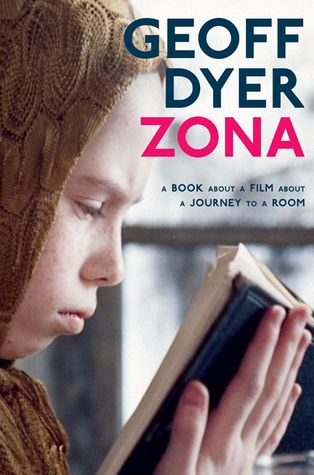More on this book
Kindle Notes & Highlights
by
Geoff Dyer
Read between
July 19 - July 24, 2020
‘If the regular length of a shot is increased, one becomes bored, but if you keep on making it longer, it piques your interest, and if you make it even longer, a new quality emerges, a special intensity of attention.’ This is Tarkovsky’s aesthetic in a nutshell. At first there can be a friction between our expectations of time and Tarkovsky-time and this friction is increasing in the twenty-first century as we move further and further away from Tarkovsky-time towards moron-time in which nothing can last—and no one can concentrate on anything—for longer than about two seconds.
‘From the standpoint of pure Art one might establish the axiom that there is no such thing as subject—style in itself being an absolute manner of seeing things.’
This is in direct contravention of Roland Barthes’s edict in his essay ‘Right in the Eyes’, that, while it is permissible for the subject to stare into the lens—at the spectator—in a still photograph, ‘it is forbidden for an actor to look at the camera’ in a movie. So convinced was Barthes of his own rule that he was ‘not far from considering this ban as the cinema’s distinctive feature.… If a single gaze from the screen came to rest on me, the whole film would be lost.’ In this case, the effect is to implicate us in the reciprocity of their gaze. We are going along for the ride too. We are
...more
‘Happy the hare at morning for he cannot know the waking hunter’s thoughts.’
We are in another world that is no more than this world perceived with unprecedented attentiveness.
‘Make visible what, without you, might perhaps never have been seen.’
Except it might not be quite as simple as Polidori and others documenting a world which had come to resemble a film made thirty years earlier. It could be that the photographers’ aesthetic—their tacit sense of what they were looking for—was partly formed by Stalker, so that the film has helped generate and shape the observed reality that succeeded it.
here the movement from participants’ subjective view to that of an undisclosed third party creates a disquieting sense of there being an extra pair of eyes.
The Zone is not simply a source of solace, the heart of Marx’s heartless world, it is a source of torment, a system of traps that constantly tests, teases and threatens not just his clients but Stalker himself. No one is immune to the capriciousness of the Zone.
Out of this comes the most distinctive feature of Tarkovsky’s art: the sense of beauty as force.*
And the usual measurements of space and distance—miles and kilometres, hectares, acres—are irrelevant.
Stalker and his clients seem to be there for just a day, but once they start taking naps and their dreams merge into the depiction of the actual journey—which is, in any case, all but indistinguishable from a less literal, spiritual journey—time dissolves.
Professor is here to measure the Zone, to measure a place whose defining quality is its immeasurability, to conduct scientific tests on miracles, to reduce it all to the predictable and quantifiable procedures of science. Writer is one of those people whose default relation to others is to get on their wrong side, to rub them up the wrong way.
Initially, in keeping with Roadside Picnic, Stalker was ‘some kind of drug dealer or poacher’ but, as the film evolved—especially when its very existence was jeopardized by the catastrophe of the ruined footage—he became ‘a slave, a believer, a pagan of the Zone.’
we are persuaded, by now, that pretty much anything can happen, even if that anything is nothing.
A true writer, as defined by Thomas Mann: someone who finds writing more difficult than other people.
There comes a point in your life when you realize that most of the significant experiences—aside from illness and death—lie in the past. To that extent the past is far more appealing than the future. The older you get the more time you spend thinking about the past, the things that have happened. Old people spend almost all of their time thinking about the past. But if their faces are anything to go by, this past fills them with bitterness as often as tenderness.
Jung claimed that ‘people will do anything, no matter how absurd, in order to avoid facing their own souls.’
The question, I suppose, is this: is one’s deepest desire always the same as one’s greatest regret?
The purpose of coming here was to get to the point where that question could be asked of oneself rather than someone else.
A devastating possibility: the most wonderful place, the most wonderful thing in the world, and no one even needs it. Effectively people have no need of what they most want, have learned to do without.


